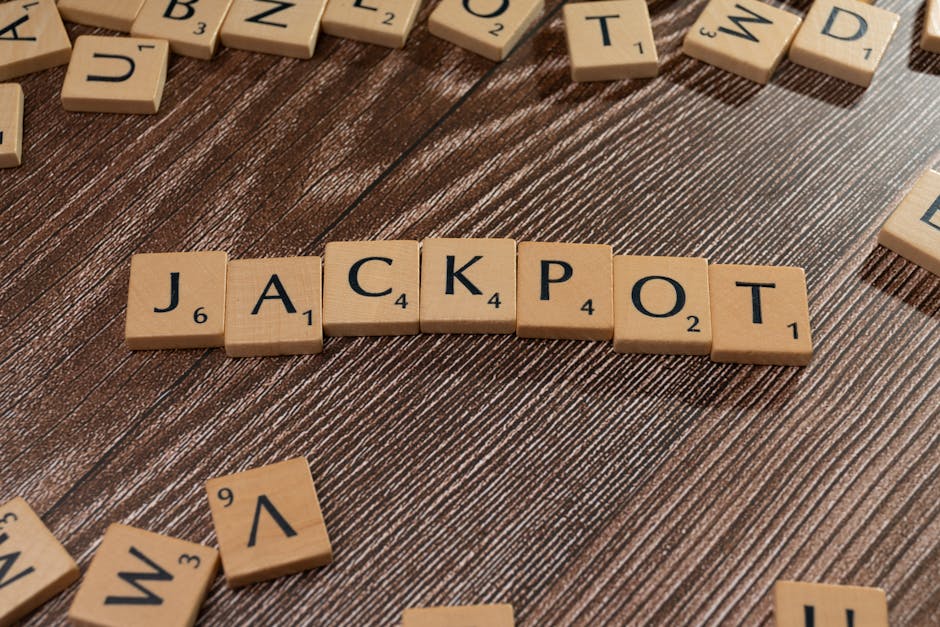The Allure of Anonymity
Not everyone wants their name in lights—even with millions on the line. For some jackpot winners, anonymity isn’t just a preference, it’s a necessity. The moment your identity goes public, the floodgates open: media turns up, long-lost relatives surface, and scammers sharpen their knives. Staying anonymous keeps life manageable, lets people process the win on their own terms, and avoids turning a lottery payout into a personal circus.
Legally, it depends where the ticket was bought. In some U.S. states—like Delaware, Maryland, and South Carolina—winner anonymity is protected by law. Others, like California and Texas, require full identification once a claim is made. Europe varies too: countries like Ireland and the UK generally allow winners to stay silent, although pressure from media outlets is a different story.
Keeping a low profile can seriously affect the winner’s lifestyle—for better and worse. On the plus side, it protects against fraud, envy, and nonstop attention. On the down side, it can be isolating. Friends wonder why you’ve gone quiet. Big life upgrades spark gossip. Some even report feeling paranoid, like they’re hiding a secret they can never talk about.
In the end, anonymity offers peace, privacy, and a chance to adjust to sudden wealth without public judgment. Not flashy. Just smart.
The Billion-Dollar Ghost
In early 2024, someone in the U.S. quietly stepped forward to claim a jaw-dropping $1.5 billion Mega Millions jackpot. The ticket was legit. The win was real. But the person behind it? A mystery. It took nearly four months for the winner to materialize—by legal proxy, no press, no parade.
Why the delay? In a word: strategy. Claiming a win of that scale isn’t just about cashing a check. It’s about preparing for the tidal wave that follows. The winner reportedly worked with legal and financial advisors before moving a muscle. That meant forming a trust to accept the money, restructuring assets for security, and sealing off every personal digital trail they could.
According to insiders, the winner never directly walked into the lottery office. Instead, their legal team handled all contact and paperwork. No selfies, no interviews, no media statements. Everything was done through layers designed to preserve anonymity and avoid attention. Even the claim location was kept vague, with the ticket traced only to a store in a busy metropolitan area.
The big lesson here? Silence buys time—and options. By staying quiet and surrounding themselves with the right advisors, this Mega Millions winner pulled off what many dream of: a giant payday without the chaos.
This is what disappearing with a billion dollars looks like when you do it right.
The “Bag of Cash” Winner in Ireland
In one of Europe’s most astonishing lottery wins, a quiet local in a small Irish town walked into the National Lottery office carrying a single slip worth €175 million. The simplicity of the act stood in stark contrast to the life-altering fortune it represented.
No Press Conference, No Photos
Unlike many winners who choose the spotlight, this individual opted for complete anonymity:
- No scheduled press conference
- No televised check hand-off
- No public statements or interviews
The only confirmation? A brief announcement by lottery officials confirming the ticket had been validated.
Insights from Leaks and Insider Reports
Though the identity remains officially protected, over time, small details surfaced through local insiders and media whispers:
- The winning ticket was purchased at a local shop known for community traffic
- Rumors suggested the winner was part of an informal workplace syndicate, though this was never confirmed
- Multiple accounts reported subtle increases in property investments and private donations in the area
Small Town, Big Buzz
In a town where everybody knows everybody, such a win doesn’t go unnoticed—even if the winner stays silent:
- Real estate prices reportedly saw a spike shortly after the win
- A new luxury car spotted outside a modest home sparked local speculation
- Some residents claimed the town “just felt different” since the prize was claimed
Rumors continue to circulate, but with no official reveal, the identity of the “Bag of Cash” winner remains one of the most closely guarded mysteries in Irish lotto history.
The Vegas Mirage: Casino Winner Who Vanished
The machine lit up. Buzzers went off. And just like that—a life changed inside a smoky Las Vegas casino. Security moved in. Staff swarmed the terminal. But the person who had just won a multi-million-dollar jackpot? Calm. Quiet. And gone within minutes.
Surveillance caught the moment: a figure pressing the button, watching in disbelief, then speaking briefly to a floor manager. When asked for a photo, they declined. A few minutes later, after the all-clear from gaming officials and a quick paperwork shuffle in a back office, the winner took their payout—and disappeared.
This isn’t rare. Casinos, especially in Vegas, allow big winners to cash out anonymously. No tax forms on the spot, no fanfare if the winner requests privacy. Most slot jackpots over a certain threshold are paid directly or through structured payments, often involving lawyers and accountants. If you’ve planned ahead—or know the right questions to ask—it’s easy to walk away invisible.
What happened next? There were rumors. A luxury car idling in the valet line. A room quietly cleared out hours before checkout. But no one really knows. That’s the power of anonymity—especially in a place built on illusion. One lucky spin, a sudden fortune, and a clean exit with zero aftermath. For all we know, they’re living a completely different life now. Or maybe they were just passing through.
In Vegas, the lights never stop flashing. But some of the biggest stories vanish just as fast as they appear.
Common Moves by Anonymous Winners
You win millions. Great. Now what? If you want to keep your life intact, staying anonymous isn’t just a preference—it’s a strategy. And it starts long before you claim the prize.
The smartest winners bring in legal muscle first. That usually means hiring an attorney who specializes in asset protection or lottery claims. In many states, your name becomes public record when you claim a prize—unless you shield it behind a trust. That’s why revocable trusts, LLCs, or even carefully layered legal entities are used to quietly distance your real name from the jackpot. In some rare cases, lawyers collect the winnings on behalf of the trust or entity, never tying the money directly to you on paper.
Financial advisers play the next major role. Silent planning is key. Avoid flashy moves—no new Ferraris or five-bedroom upgrades overnight. If you’re serious about disappearing into normalcy, keep spending low-key and let investments quietly grow. Think quiet portfolios, offshore accounts for some, and using shell companies for major purchases. The more noise you make financially, the easier it gets to connect dots.
Then there’s the digital silence. No cryptic tweets, no saccharine Instagram posts about abundance, no flexing. Wipe or deactivate personal accounts. Kill location tags and double-check who you trust with your whereabouts. The less data you leak, the harder it becomes to trace the money trail or tie you back to the story.
At the end of the day, anonymity is an active process. It’s not about hiding once—it’s about staying hidden, over time, with discipline. The winners who pull this off are rarely lucky. They’re prepared.
Why Some Regret Going Public
Winning big might sound like pure bliss, but the spotlight can turn that dream into a mess fast. There are more than a few well-known stories of winners who went public—and quickly wished they hadn’t. In one case, a man who won over $300 million became the target of repeated fraud attempts, including someone posing as him to open fake accounts and loan requests. Another winner from the UK had to install bulletproof glass in his home after kidnappers targeted his kids. These stories aren’t just paranoia—they’re loud wake-up calls.
Winning pulls more than headlines. It can pull old friends with pitches, cousins you’ve never met, and scammers who’ve already googled your house. Some winners have said the worst part isn’t the public—it’s the family. Guilt trips, entitlement, silent resentment. Generosity has its limits, but expectations don’t seem to.
Staying anonymous isn’t about being secretive—it’s about control. It lets winners manage their wealth privately, reduce risk, and keep their lives intact. Because when your face is front-page news, there’s no putting the genie back in the bottle. Anonymity, for many, is the only true luxury that comes with winning.
Should You Stay Anonymous If You Win?
Winning a massive jackpot may seem like a dream, but deciding whether to go public—or stay in the shadows—can have lasting consequences. For many, anonymity provides a rare layer of protection in a world that quickly turns personal fortune into public spectacle.
Pros of Staying Anonymous
- Privacy and Safety: Reduces the risk of scams, unsolicited requests, and threats.
- Less Public Pressure: No media frenzy, no instant social status shift.
- Financial Discretion: Allows for quieter, more deliberate planning.
Cons of Staying Anonymous
- Limited Personal Expression: You may want to celebrate publicly but feel restricted.
- Complicated Claim Processes: Some jurisdictions don’t allow anonymous claims or require extra legal steps.
- Rumors and Speculation: In tightly knit communities, anonymity can spark rumors or distrust.
What Experts Recommend
Your location and the size of your winnings often determine your best strategy.
- In Some U.S. States: Anonymity is legally allowed or automatically granted for jackpots over a certain amount.
- In Others: Winners must be disclosed, which may require consultation with an attorney to minimize exposure.
- Expert Advice: Always consult a lottery lawyer and a financial advisor before making your identity public.
First Steps After the Win
Whether you choose to stay anonymous or not, the first 48 hours are critical. Here’s what experts say to do immediately:
- Secure the Ticket: Sign it, photograph it, and put it in a safe, secure spot.
- Don’t Tell Anyone (Yet): Resist the urge to share until you have a plan.
- Hire Professionals: Engage a lawyer, financial advisor, and potentially a public relations consultant.
- Create a Trust or Legal Entity: If allowed in your region, claim the prize under a trust or LLC to protect your identity.
Staying anonymous isn’t always an option—but it often leads to better long-term outcomes. Planning early gives you more control over a life-changing moment that doesn’t need to change you for the worse.
Want to See the Biggest Public Wins?
While many jackpot winners choose to stay out of the spotlight, others step into it—sometimes by choice, other times by necessity. These public winners often make headlines not just for the size of their prizes, but for the wild turns their lives take afterward.
When Winners Go Public
Some reasons people opt to claim their winnings publicly:
- Legal requirements in certain states or countries
- Desire to share the news with their community
- Dreams of launching public ventures or causes
- Confidence in managing the media spotlight
However, going public isn’t without its risks. High-profile winners have been known to face excessive media attention, sudden pressure from strangers, and even security concerns.
See the Stories for Yourself
Want to know what happens when the cameras flash and the checks are oversized?
Take a deep dive into the lives of those who went public and what followed:
- Sudden wealth and the price of fame
- Lavish spending sprees—or total meltdowns
- The inspirational stories… and the cautionary tales
Read more about the biggest, boldest public wins in history here:
Biggest Jackpot Wins in History and What Happened Next
Final Thoughts
Anonymity doesn’t make headlines. That’s the point. While the world fixates on the glitzy stories of overnight celebrities holding oversized checks, silent winners operate on a different wavelength entirely. They opt out of the spotlight and into something far more valuable: control.
These winners aren’t flashy. They hire lawyers first, make quiet financial moves second, and often never show their faces at all. It’s not fear—it’s strategy. They protect their peace, avoid scammers, sidestep public expectations, and build wealth on their own timeline. No press conference needed.
Here’s the takeaway: anonymous winners remind us that big fortune doesn’t have to bring chaos. Privacy can be power. Staying quiet can be the smartest play of all. If luck ever knocks on your door, remember the ones who said nothing—and won anyway.




